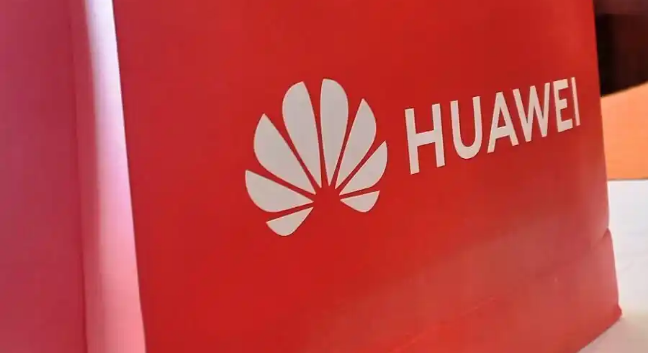As demand from telecom operators increases, Huawei has planned to expand its use of fifth-generation (5G) networks in Nigeria and other African countries.
The company’s 5G business has been growing on the wave of acceptance in Africa, according to Peng Song, its president of strategy and marketing, who made the statement during the 13th Global Mobile Broadband Forum held in Bangkok, Thailand.
Development of 5G in Nigeria
MTN Nigeria, one of the country’s 5G license holders, launched the technology in Lagos utilizing the 3.5 gigahertz (Ghz) spectrum and promised to build the network in six additional regions, including Abuja, Port Harcourt, Ibadan, Kano, Owerri, and Maiduguri. With this, Nigeria joined South Africa and Kenya as the third African nation to use the technology.
Read also: Kenya, Huawei Collaborate to Train Students on Cybersecurity
MTN showed its readiness to offer Nigerians the best of service with 5G technology when it became the first telecom operator to roll out 5G technology services on its network on August 24, 2022. MTN Nigeria kicked off an open 5G pilot in the lead-up to its highly anticipated commercial launch.
The Lagos 5G commercial debut followed the city’s 5G trial launch three weeks prior, as required by the Nigerian Communications Commission, the industry regulator for the telecommunications sector (NCC).
The telecom operator had said that it has set up 127 5G stations in advance of the debut of 5G in its half-year 2022 report. The technology is anticipated to be implemented gradually, with complete national adoption anticipated by 2025.
By enabling substantially faster speeds and reduced latency, the cutting-edge 5G technology is expected to increase the breadth and capacity of MTN Nigeria’s data network, allowing users almost immediate access to the things they care about and downloads that take seconds rather than minutes.
At the forum, Song said: “Our 5G business success is on an upward trajectory, and this growth can be attributed to the African continent. We started off with just 200,000 base stations, but today I can announce that we have deployed just under half a million base stations outside china, accounting for 70 per cent of the world’s total.”
He claims that during the previous three years, the technology has been adopted by 12 local telecom carriers in 10 various markets.
5G Network has No Health Effects
The Nigerian Communication Commission (NCC) has informed the public that the new 5G network, also known as the Fifth Generation network, has no harmful health consequences.
At a roundtable discussion with members of the Association of Heads of Federal Establishments on Saturday in Enugu, the Enugu Zonal Controller of the NCC, Mr Ogbonnaya Ugama, provided the clarification (AHFEs).
According to Ugama, there is no solid proof that electromagnetic radiation from gadgets like phones is damaging to human health.
He said that international organizations, such as the World Health Organization (WHO), have established a standard that there must be no convincing proof that 5G has harmful impacts on both human and animal health.
However, if they had any reservations, the controller encouraged users not to keep these electromagnetic objects, such as phones, near their bodies.
“NCC shall take all reasonable steps to protect public safety and to see that every component of technology meeting predetermined requirements is authorized.
Ugama reaffirmed the advantages of the 5G network, noting that it was created to boost cellular service flexibility while lowering latency and increasing speed.
“5G has a theoretical peak speed of 20 Gigabytes per Second (GBPS) while the peak speed of 4G is only one GBPS.’’
“5G can transform Nigeria’s economy, dwelling on its projected impact in sectors of education, finance, security, agriculture, healthcare, entertainment, and even governance,” he said.
The controller revealed that Nigeria was the third African nation to deploy a 5G network and was active across six states, including Lagos, Imo, Borno, Kano, Rivers, Oyo, and the Federal Capital Territory, Abuja.
By 2025, according to Ugama, other states will be connected to the network.
5G is Essential to Growing Nigeria’s Economy
According to Umar Danbatta, executive vice chairman of the Nigerian Communications Commission, the rollout of 5G in Nigeria and hyperconnectivity are still essential for growing the country’s economy and serving as a foundation for its fintech ecosystem.
The chairman outlined how intelligent connection, made possible by 5G, would serve as a catalyst for socioeconomic development during the Fourth Industrial Revolution and create social value through supporting sustainable cities, communities, and good employment opportunities. He continued that using technical applications that will assist industrial advancements would also significantly increase economic and social worth.
“Beyond the technological benefits, 5G is expected to facilitate the localization of several emerging technologies, facilitate innovative use cases, spur significant socio-economic growth, and lead sector-led creation of jobs in the private sector,” he added.
In the meantime, he advised businesses to invest in ICT services and infrastructure for a supportive business climate, noting that Nigeria’s fintech ecosystem needed hyperconnectivity to prosper.




